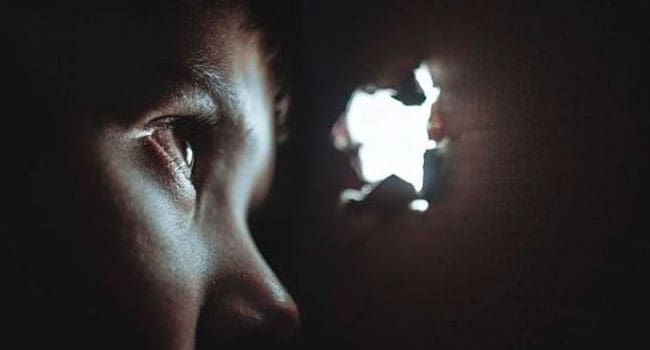 We want simple answers. But, sometimes, there aren’t any. Take Manitoba’s child welfare system, for example.
We want simple answers. But, sometimes, there aren’t any. Take Manitoba’s child welfare system, for example.
We want to find a solution to a problem that has plagued us for generations: What to do about the huge numbers of Indigenous children taken into the care of child welfare agencies each year?
Meetings are held in Winnipeg and Ottawa. New plans and new funding arrangements are announced. Editorial writers and senior politicians indignantly declare that henceforth children should be left with their biological parents, instead of being apprehended.
Then we see situations where a child left with incompetent parents suddenly dies.
Then, following an expensive inquiry, politicians and editorial writers sanctimoniously demand that children must be protected at all cost. As a result, apprehensions resume with urgency. The numbers of children in care swell.
Meanwhile, the Indigenous advocates criticize the situation and demand new funding formulas.
The cycle keeps repeating itself.
In fact, there are no easy answers.
Consider a case I know well: A mother is about to give birth. She has already had babies born with fetal alcohol spectrum disorder (FASD). In fact, she is FASD herself. Sentimentally, it’s easy to say she should be with her baby and her baby should be with her. But the fact is that the children she has already given birth to are at a severe disadvantage because of their brain damage, caused by the mother’s alcohol consumption while pregnant. They will, in fact, have a very difficult time trying to live any kind of a good life. Chances are they will do poorly in school, end up in jail or on the street, and live a compromised life.
The unfortunate mother wants to stay away from alcohol and drugs, but always goes back to abusing drugs and alcohol, at least in part because of her FASD.
What’s a conscientious childcare worker to do?
At one time, the childcare worker was non-Indigenous. Now, they probably are Indigenous. It really doesn’t matter. The choice they face is the same. And the choice is terrible. Either they apprehend and the child enters a child welfare system that guarantees nothing, or they don’t and the child has practically no chance of living any kind of a useful or happy life.
In Manitoba, we have had tragedies, like the baby Sophie and Phoenix Sinclair cases, where leaving the children with the parents cost the children their lives.
Just in the news was the case of the late Kierra Elektra Star Williams, a 21-month-old child from the Peguis First Nation. She died of internal bleeding as a result of an abdominal injury inflicted by her mother, Vanessa Bushie. Her father, Daniel Vernon Williams, was found guilty of manslaughter in Winnipeg for failing to protect the baby.
Here’s what the father saw, as reported in the Winnipeg Free Press:
“By the time she died, Kierra was severely malnourished, her tiny body bruised and showing signs of prolonged abuse – including broken bones, a cracked skull, five missing teeth, a dislocated shoulder and an eroded nose.”
It doesn’t get much worse than this.
Kierra was apprehended by a child welfare agency but returned to her parents a year before she died. So far, there’s no significant outcry about the actions of the child welfare agency. In fact, there has been no outcry about anything connected with this case.
This is, indeed, surprising, after the furious tweeting of the prime minister and minions in the cases of Gerald Stanley and Raymond Cormier (accused of killing Tina Fontaine), and the rallies and protests organized by Indigenous advocates, attended by thousands of outraged people.
Where is the justice for Kierra Star Williams?
Apparently, there is not to be any. She is just another Indigenous child who has died at the hands of her natural parents. There was no all-white jury or non-Indigenous accused, so she merits only a side column in the newspaper.
Meanwhile, the front-line child welfare worker has to make a decision in other cases that have the potential to end in the same kind of tragedy. The bleating of cabinet ministers and scoldings from indignant editorial writers about the importance of keeping children with their biological parents are of no help – and might actually persuade the worker to make the wrong decision and condemn a child to a premature death.
And what about the cases of older children labelled as out of control who find their way into the child welfare system? The tragic death of Fontaine comes to mind. This girl ran wild when she was with her biological family and continued to do so when placed in the child welfare system.
The system failed her but so did her alcohol-addicted mother, so did her community, so did the Indigenous leaders. But most of all, she failed herself; she would not change her behaviour even when other people pointed out that her life was spinning out of control.
Even if the system was better, a case like Fontaine’s has no easy answers. Such cases are made much more difficult by the fact that there are really two Winnipegs: the middle-class city where people go about their busy lives and the city where the Indigenous underclass lives, where little girls sell themselves to dangerous men, Indigenous and non-Indigenous, for drugs and alcohol.
The child welfare system was completely revamped. Indigenous agencies replaced the non-Indigenous agencies. The price for taking this drastic action was very high, and Manitoba had to endure years of poorly trained and inadequately supervised child welfare personnel making many bad decisions.
But even after paying that steep price, the number of Indigenous children in care has not gone down. In fact, it went up quite dramatically after the Indigenous agencies took over. They are now at an all-time high.
And now yet another reorganization and new funding plan has been announced.
The truth is that politicians – Indigenous and non-Indigenous – have very little control over how many Indigenous children are in need of protection. No amount of funding plans or reorganization can solve this problem as long as alcohol and drug issues are such problems in First Nations communities, and as long as the spillover into urban centres remains out of control.
That’s why the overwhelming majority of Indigenous children who need protection are in this dire situation.
So the politicians must do what they can but they should resist the temptation to self-righteously criticize decisions made in good faith by child welfare workers. And they should resist claiming that their latest reorganizational plan or new funding formula will solve this problem.
Because when their newest plan fails, it will be very clear that they spoke empty words.
More than 150 years of isolation and dependency have resulted in alcohol and drugs becoming a way of life on reserves and in the inner neighbourhoods of major cities. This massive and intractable problem is not going away any time soon.
We need to admit that there are no easy answers.
Brian Giesbrecht is a retired judge and a senior fellow with Frontier Centre for Public Policy.
The views, opinions and positions expressed by columnists and contributors are the author’s alone. They do not inherently or expressly reflect the views, opinions and/or positions of our publication.

